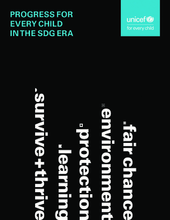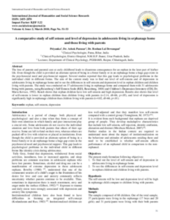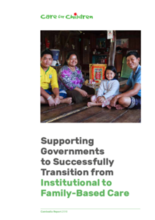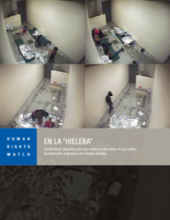Displaying 701 - 710 of 1510
Based on an analysis of the evolutions in the way the care structures for unaccompanied minors were set up in Belgium, the authors of this article critically reflect on the underlying rationales that justify the particularities of these structures, hereby also reflecting about the implications of these rationales for professionals and researchers.
Drawing on in-depth semi-structured interviews with 37 caregivers in two Children's Homes in Ghana, this study sought to explore caregivers' suggestions of solutions to barriers in childcare.
This study investigated the relationship between congenital conditions and post-adoption mental disorder diagnosis and treatment in 235 female youth who were adopted from China about 15 years prior.
This study aims to observe the effect of structured education provided to improve self-esteem and hope on the self-esteem and the suicide probability of male adolescents living in orphanages.
This article discusses emerging trends in deinstitutionalisation and alternative care avenues nationally and internationally and examines the Miracle Foundation's evolution from a residential care provider to a family-based care and family strengthening organization.
This report from UNICEF assesses the world’s performance towards meeting the 2030 Sustainable Development Goals (SDGs) to date, focusing on 44 indicators that directly concern 2030’s most important constituency: children.
The aim of the current study was to find out level of self-esteem and of depression in adolescents living in orphanage home and to see the differences in self-esteem and depression level in orphan children and children living with parents.
This cross-sectional descriptive study explores the behavioral and emotional problems in institutionalized children in India.
This report provides a summary of research methodology and details of meetings and data collection from an October 2017 research visit to understand the current child welfare system in Cambodia, in particular the role and function of the Government residential care institutions (RCIs). The report presents findings and recommendations for pathways forward for government-led foster care development.
Este informe examina el cumplimiento por parte de las autoridades estadounidenses de las protecciones específicas que deben otorgarse a los niños, basándose en 110 entrevistas a niños y mujeres detenidas con sus hijos.




